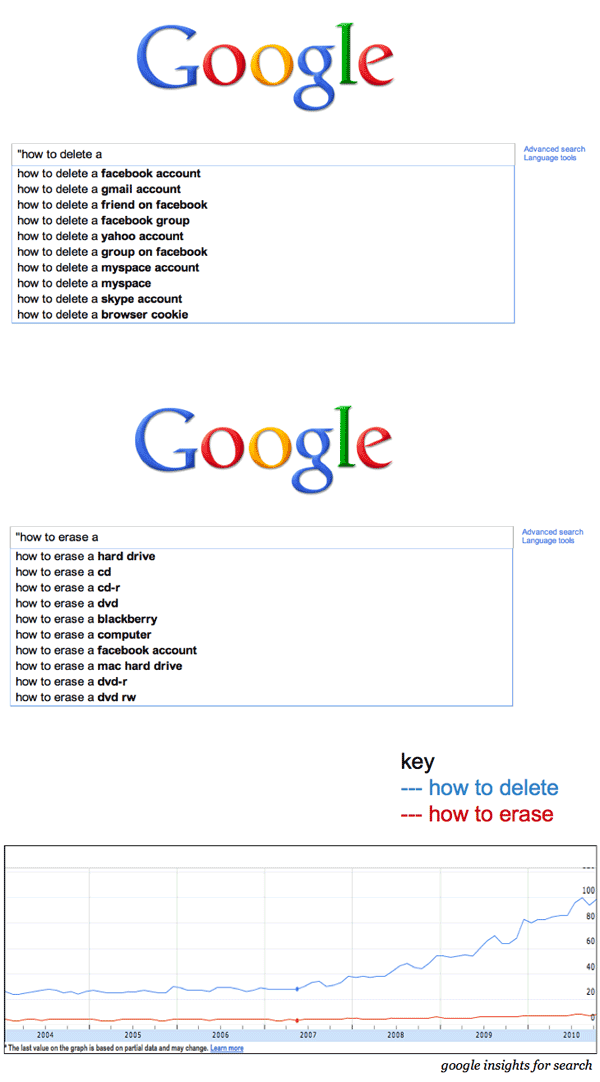All good research in the 21st century begins with a Google Search. I wanted to know: What do people want to delete, from what surface do they want to delete information from, and which tools and/or processes are commonly sought? Expecting similar results, but for the sake of curiosity I used the phrases “how to delete a” and “how to erase a” in separate searches. And this is what I found:

From etymonline.com:
- erase
- c.1600, from L. erasus, pp. of eradere “scrape out, scrape off, shave,” from ex- “out” (see ex-) + radere “to scrape” (see raze). Of magnetic tape, from 1945. Related: Erased; erasing.
- delete
- late 15c., “destroy, eradicate,” from L. deletus, pp. of delere “destroy, blot out, efface,” from delevi, originally perf. tense of delinere “to daub, erase by smudging” (as of the wax on a writing table), from de- “from, away” (see de-) + linere “to smear, wipe” (see lime (1)). In English, specifically of written matter, from c.1600. Related: Deleted; deleting.
Although I wasn’t expecting the words associations for delete and erase to be so distinct, I decided to follow the trail. Why this difference? If etymologically the two terms are more or less comparable, why have methods for deletion gained so much in popularity relative to erasure? Why is erasure more often associated with physical media, while deletion is about accounts, browsing history, platforms?
My theory is a hypothesis that I want to explore, perhaps change, certainly deepen, but for now propose: A meaningful change is taking place in our relationship to the materiality of deletion. We are increasingly treating communication as a fundamentally social agreement with negligible material negotiation. This is because of the primacy of the interface, the receding presence from the screen of information storage – from hard drive to the cloud, the persistence of the mail carrier metaphor in electronic communication, and the accommodating posture of social network and web service providers.

